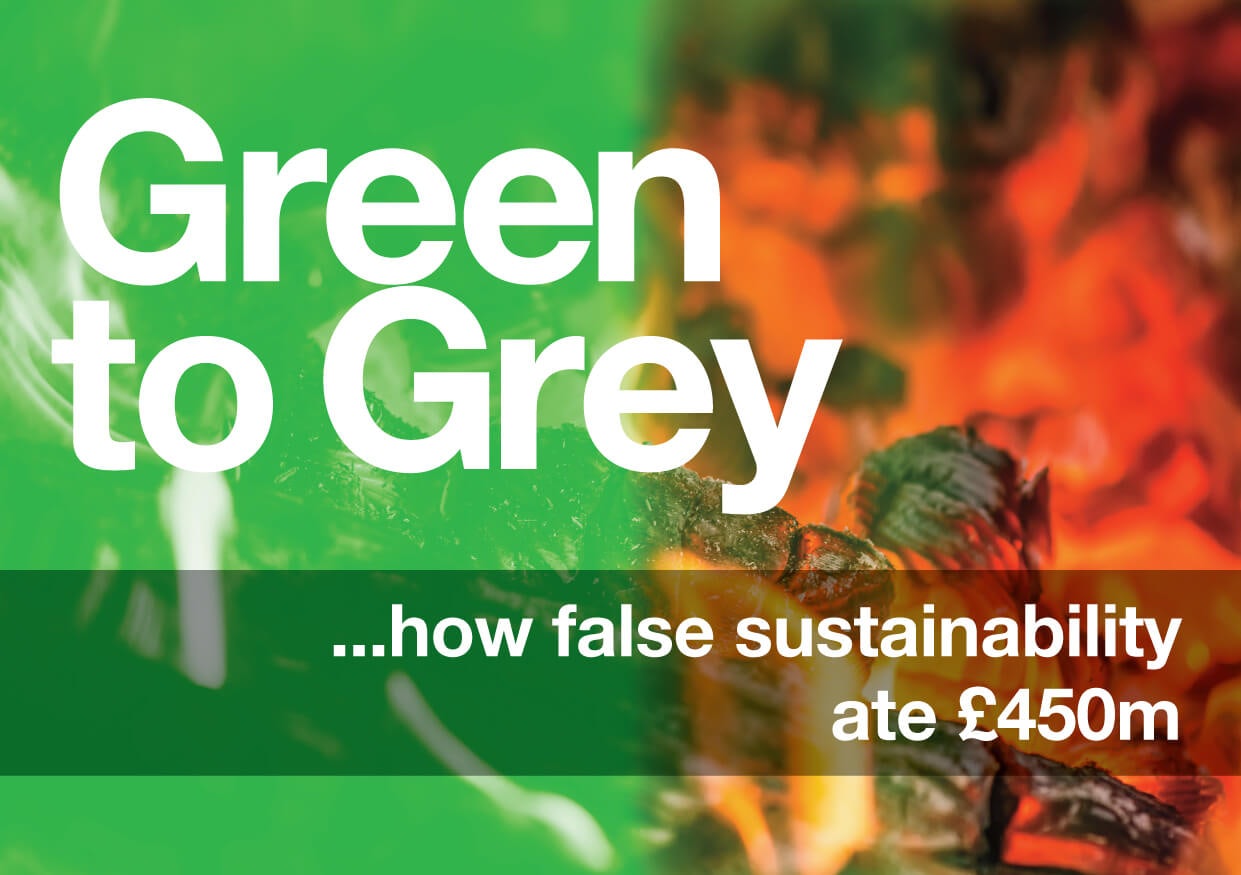Green to Grey – How False Sustainability Ate £450m
Last August Dashboard wrote about green energy’s black sides – how despite the hype and positive media coverage it is not nearly as environmentally friendly as it is made out to be.
Now, a new report by Duncan Brack explores how one of the conventionally regarded as green methods, woody biomass, has the opposite effect.
Brack, who is an accredited environmental analyst and adviser, published his paper towards the end of February. It demonstrates how burning American wood pellets, a method popular across the world but especially the EU and UK, is much more damaging to the environment than the traditional coal. It takes into account all greenhouse gases of the process, including chopping, processing, transportation and burning activities that amount to meeting EU’s renewed sustainable energy usage targets but do not behave environmentally friendly in reality as the total emissions are so high.
The problem with the popularity of the wood pellet system is not only its discussed reverse effect, but the investment it has gathered. Although it has only been favoured for a short amount of time (from 2010 onwards) government-led schemes have encouraged the use and subsidised it heavily to offset other polluting approaches. A case example of this is Drax, the UK’s biggest power station, who received over £450m in government subsidies in 2015 alone for opting to burn biomass instead of coal.
The report further explains how the false assessment that lead to the waste of government budget was down to failure in considering burning emissions together with other stages of the process. It highlights the need for the government – and power producers too, to analyse forthcoming modifications more closely and with caution.
The phenomenon identifies a threat to the green energy industry as a whole. At first glance it seems that there is plenty of research conducted into the subject but mishaps such as this one demonstrate just how critical the impact of incomplete or incorrect information can be.
Dashboard embraces the importance of thorough supply chain and data examination before irreversible decisions similar to the one in question are made, then our stakeholders can make better informed decisions of any potential dangers.
